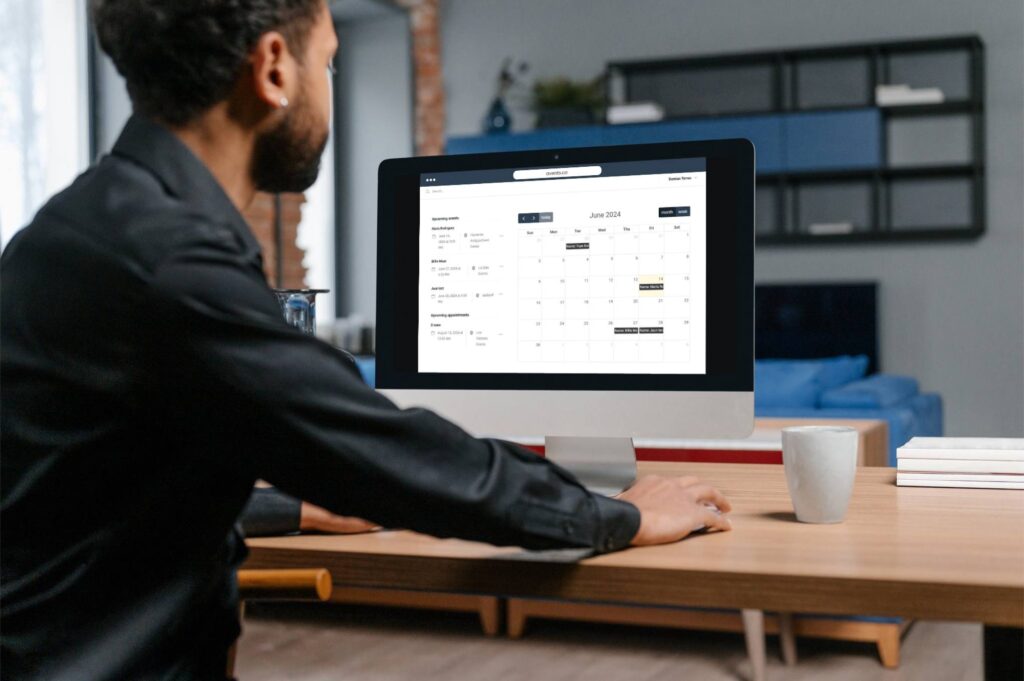An event manager plays a crucial role in organizing and executing various events. This professional oversees tasks ranging from planning and logistics to promotion and post-event evaluation, ensuring everything runs smoothly. With tools like AVENTS, managing events becomes more efficient. Features within this event planning software improve the workflow for photographers, addressing client needs and helping streamline scheduling and coordination effectively.
What is an Event Manager?
An event manager plays a crucial role in the execution of successful gatherings. This individual is responsible for overseeing every aspect of an event, ensuring that all components work harmoniously together. From concept development to the final evaluation, an event manager is at the helm, guiding each phase of the project.
Key functions include:
- Planning and organizing the event from start to finish.
- Coordinating details with clients, suppliers, and stakeholders.
- Managing logistics to create a seamless experience for participants.
- Executing promotional strategies to attract attendees.
- Overseeing the event on the day it occurs, ensuring everything runs smoothly.
Responsibilities encompass a variety of tasks that require strong organizational skills, attention to detail, and effective communication. An event manager must be adept at managing multiple facets of an event, often working under pressure and fluctuating deadlines.
Overall, the role of an event manager is not just about planning; it’s about creating memorable experiences. Their expertise fosters positive relationships and can significantly impact brand visibility within the broader community.
Trends in Event Management
In recent years, event management has undergone significant changes driven by technology and the growing emphasis on sustainability. These trends are reshaping how events are conceived and executed, influencing every aspect from planning to attendee experience.
The Rise of Digital Events
The digitization of events has become increasingly prominent, especially since the onset of the COVID-19 pandemic. Event planners are now leveraging technology to create more engaging experiences and to reach wider audiences through virtual formats.
Hybrid Events
Hybrid events, which combine in-person experiences with virtual components, are gaining traction. This model allows for:
- Wider Accessibility: Attendees can choose between attending in person or virtually, accommodating different preferences and situations.
- Enhanced Engagement: Utilizing streaming technology enables real-time interaction between in-person and remote participants, fostering a more inclusive atmosphere.
- Flexibility: Hybrid events can adapt to changing conditions, including local health guidelines and travel restrictions.
Streaming Platforms
Streaming platforms play a crucial role in the execution of digital and hybrid events. These platforms offer features that enrich the viewing experience, such as:
- Live Interaction: Attendees can ask questions and participate in polls during sessions.
- On-Demand Content: Participants have the option to access recorded sessions after the event, enhancing value and reach.
- Analytics Tools: Organizers can track engagement metrics, helping to inform future event strategies.
Sustainability in Event Planning
As awareness of environmental issues grows, sustainability has become a core focus in the event management industry. Planners are increasingly tasked with finding ways to reduce the ecological impact of their events.
Waste Reduction
Waste reduction strategies are essential for creating eco-friendly events. Key approaches include:
- Digital Materials: Reducing paper usage by utilizing digital invitations, programs, and signage.
- Responsible Catering: Partnering with caterers who prioritize local, organic ingredients and minimize food waste.
- Recycling and Composting: Implementing waste management systems that recycle materials and compost organic waste to limit landfill contributions.
Local Supplies
Sourcing local supplies not only supports regional economies but also lessens the carbon footprint associated with transportation. Benefits of this approach include:
- Reduced Transportation Emissions: By choosing local vendors and suppliers, events can significantly cut down on travel distances.
- Community Engagement: Collaborating with local businesses fosters community relations and cultivates a unique local flavor for events.
- Resource Availability: Local suppliers often have a better understanding of the area and can provide tailored solutions that enhance the event experience.
Event Manager Tools and Software

In the fast-paced world of event management, utilizing the right tools and software is essential. These resources streamline processes, enhance communication, and improve overall efficiency in managing events.
Overview of Event Management Tools
Event management tools encompass a range of software applications designed to facilitate the planning, execution, and analysis of events. These tools cover various aspects, including scheduling, registration, budgeting, and reporting. Some of the most popular tools in the industry include:
- Event registration platforms
- Budget management tools
- Communication and collaboration software
- Marketing automation systems
- Data analytics solutions
These platforms provide event managers with the capability to manage every detail efficiently. As event complexity grows, the need for such tools becomes increasingly important. They enable seamless coordination between team members and stakeholders, ensuring that no aspect of the event is overlooked.
Benefits of Event Planning Software
Event planning software offers numerous advantages that enhance the productivity of event managers. These benefits extend to various stages of the event lifecycle, from conception to execution and beyond.
Automation Features
One of the primary advantages of event planning software is the automation of repetitive tasks. Automation features can include:
- Automated email reminders for attendees
- Scheduled social media promotions
- Instant reporting and data collection
By automating these tasks, event managers can save significant time and reduce the likelihood of errors. Automation allows them to focus on more strategic aspects of event planning, such as enhancing guest experiences and maximizing engagement.
Real-Time Analytics
Another vital benefit of using event planning software is access to real-time analytics. These tools provide insights that are crucial for informed decision-making. Key features often include:
- Tracking attendee registration and engagement metrics
- Analyzing budgetary spending instantly
- Monitoring feedback from participants during and after events
Real-time analytics empower event managers to make adjustments on the fly, ensuring that the event meets its intended goals. The ability to access up-to-date metrics allows for quick responses to emerging challenges or opportunities, significantly enhancing the overall success of an event.
Utilizing AVENTS for Event Management
Features of AVENTS
AVENTS is designed with a plethora of features specifically tailored for event managers. These features facilitate a more organized and efficient event planning process. Key elements include:
- Integrated Communication Tools: AVENTS enables seamless communication among team members and clients, ensuring everyone is on the same page throughout the planning process.
- Task Automation: Routine tasks such as scheduling, reminders, and follow-ups can be automated, allowing event managers to focus on more complex aspects of event planning.
- Real-Time Collaboration: Users can work together on tasks and updates in real-time, fostering teamwork and reducing delays caused by miscommunication.
- Customizable Templates: AVENTS offers a variety of templates for proposals, timelines, and budgets, which can be tailored to fit specific events and client needs.
- Analytics and Reporting: Users can access impactful data and analytics to evaluate previous events and inform future planning strategies.
How AVENTS Enhances Workflow
The integration of AVENTS into the event management process can significantly streamline workflows. This enhancement is achieved through:
- Centralized Information Hub: All event-related details and documents can be accessed from a single platform, cutting down the time spent searching for information.
- Efficient Client Management: Track communication, contracts, and feedback all in one place, ensuring that no detail is overlooked.
- Improved Deadline Management: AVENTS allows managers to set deadlines and receive notifications, helping ensure that all phases of event planning stay on track.
- Enhanced Resource Management: The tool aids in tracking budgets and resource allocation effectively, minimizing waste and maximizing efficiency.
Success Stories with AVENTS
The impact of AVENTS on event management has been demonstrated through numerous success stories. These narratives reveal how various organizations have greatly benefited from its features:
- Case Study: Corporate Conference: An organization successfully organized a large corporate conference, achieving a 25% increase in attendee turnout due to improved marketing strategies facilitated by AVENTS.
- Case Study: Wedding Planning: A wedding planner utilized AVENTS to coordinate with multiple vendors seamlessly, resulting in streamlined communication and a stress-free event execution.
- Case Study: Charity Event: A nonprofit organization was able to maximize fundraising efforts by using AVENTS to manage donor communications effectively, leading to a record-breaking donation round.
Event Manager Apps and Their Importance
In the evolving landscape of event management, the integration of technology plays a pivotal role. Event manager apps streamline processes, making planning and execution efficient and effective.
Top Event Manager Apps
There are numerous apps available that cater to the various needs of event managers. These applications are designed to facilitate different aspects of event planning and management. Some of the leading event manager apps include:
- AVENTS: This tool offers comprehensive features for planning and managing events effectively.
- Eventbrite: Known for ticketing, this platform also helps with event promotion and attendee management.
- Cvent: A robust solution focusing on event registration and logistics management.
- Whova: This app enhances attendee engagement and interaction through its networking features.
- Bizzabo: Combines event marketing with analytics to measure success and ROI.
Integrating Apps into Your Workflow
Integrating event manager apps into daily operations is essential for maximizing productivity and ensuring seamless collaboration among team members. Effective integration can be approached through the following strategies:
- Centralized Communication: Use apps that provide built-in communication tools to keep all stakeholders informed and engaged.
- Data Synchronization: Ensure that your event management apps synchronize data with other platforms to maintain consistency and accuracy.
- Task Automation: Leverage automation features within the apps to streamline repetitive tasks such as sending reminders and managing registrations.
- Real-Time Monitoring: Utilize apps that allow real-time tracking of event progress and attendee engagement, providing immediate insights.
By effectively incorporating these apps, event managers can enhance their organizational efficiency, improve client interactions, and elevate the overall quality of events they produce.
